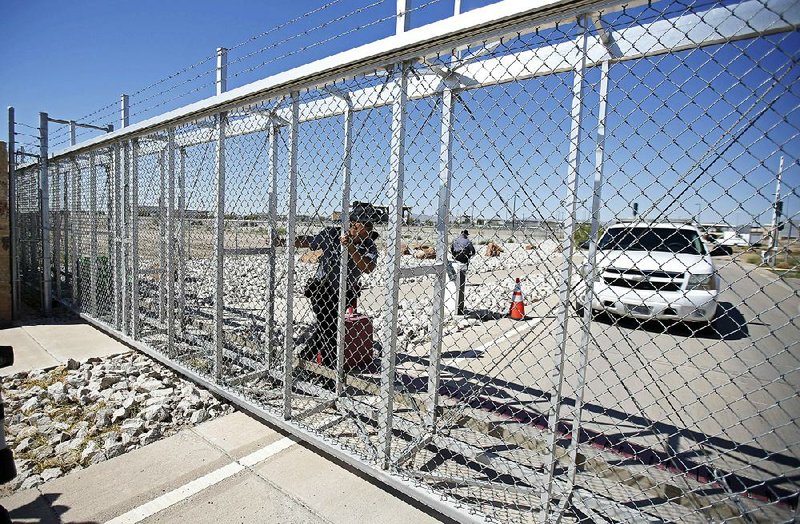WASHINGTON -- President Donald Trump's administration has removed all teenagers from a tent camp for unaccompanied migrant teens caught crossing the U.S.-Mexico border in Texas, weeks after a federal watchdog warned about "serious safety and health" concerns at the facility.
Officials said about 5,500 of the 6,200 Central American teens who cycled through the Tornillo camp since June have been released to a parent or guardian inside the United States to await a decision in their immigration cases. About 700 were transferred to other facilities overseen by the U.S. Department of Health and Human Services.
"As of this weekend the last group of unaccompanied alien children will have been transferred or discharged from the Tornillo" facility, Lynn Johnson, assistant secretary of Health and Human Services' Administration for Children and Families, said in a statement.
She said the government is still in the process of dismantling the controversial camp, which is scheduled to close this month. And she defended the Trump administration's decision to open the emergency outpost as a "necessary" step to care for hundreds of minors crossing the border daily.
Lawmakers and others who have criticized the camp cheered its impending closure Friday and said the government should have moved faster to release its occupants.
"This tent city should never have stood in the first place but it is welcome news that it will be gone," U.S. Rep. Will Hurd, a Republican who represents a Texas border region, tweeted Friday after the last teenager left the camp.
Former Rep. Beto O'Rourke, an El Paso Democrat who pressured Health and Human Services to close the facility, posted on Twitter that the closing was "good for these kids and their families."
Three weeks ago, the camp held 2,800 teens. Of these, 300 were transferred to other facilities, and the rest were released to sponsors, usually relatives, who had been vetted by the government.
Tornillo initially opened with 30 days' funding on a sprawling patch of land outside El Paso and swelled over the next seven months into a 120-tent camp with room for 3,800 people.
As the number of migrant children in government custody reached a record high late last year, Health and Human Services was set to pay up to $367.9 million between mid-September and December to operate the shelter, according to federal records. Officials said teens spent an average of 36 days at the facility.
In November, Health and Human Services Inspector General Daniel Levinson warned of "significant vulnerabilities" at the Tornillo camp, including inadequate criminal background checks for staff members.
U.S. Customs and Border Protection apprehended more than 50,000 unaccompanied child migrants last fiscal year, up from 41,435 the year before.
Federal law requires Border Patrol agents to quickly turn over unaccompanied minors to one of more than 100 shelters overseen by Health and Human Services' Administration for Children and Families. They stay there until caseworkers locate a sponsor to house them while their cases are processed in the country's backlogged immigration system.
New background-check requirements imposed last year made it more difficult to find and vet sponsors for the children.
The Trump administration mandated that all residents of a would-be sponsor's household submit fingerprints to the FBI. The government also said Health and Human Services could share information about potential sponsors with U.S. Immigration and Customs Enforcement, which had not been done in the past.
The policies left some potential sponsors reluctant to come forward, or unable to persuade their housemates to provide fingerprints, because they feared deportation, advocates said.
Government shelters swelled to more than 14,600 children, up from 9,200 when Trump took office two years ago.
Health and Human Services eased the fingerprinting requirement last month, saying it was slowing the process and generally did not identify new threats to children's welfare. By this week, Wolfe said, the number of minors in custody had fallen to about 11,400.
A Section on 01/12/2019
